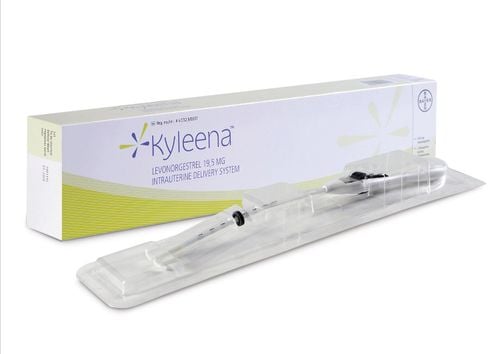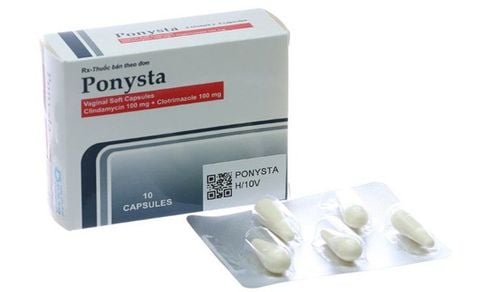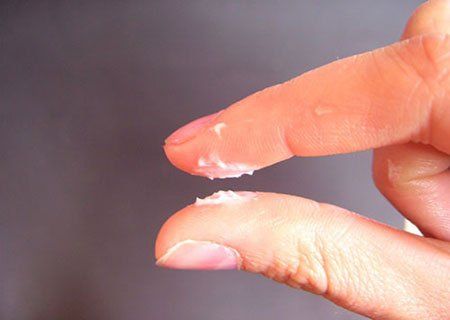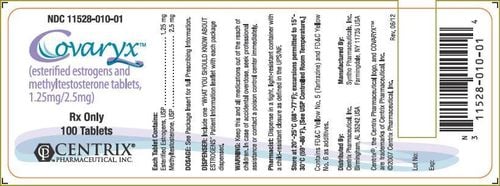This is an automatically translated article.
The article was consulted with Specialist Doctor I Le Thi Phuong - Obstetrician and Gynecologist - Department of Obstetrics and Gynecology, Vinmec Ha Long International General Hospital.Today, the frequency of appointing different types of gynecological surgery is increasing, in which there are some types such as private plastic surgery or private beauty surgery, in accordance with the needs of society. Usually, women are given instructions on how to care for them after surgery by their surgeons. These guidelines are intended to help limit or recognize complications early, as well as aid in the recovery process. The information in the article is provided to help answer frequently asked questions about post-operative gynecological care in general and how to clean the private area after surgery in particular.
1. How to clean the private area after surgery
As soon as the patient wakes up after surgery, the patient usually still has a tube to drain urine from the bladder into a bag, with or without a pad or tampon to absorb fluid and blood from the vagina. Doctors usually order patients to rest in bed for a period of time, depending on the case, usually from 8 to 24 hours. In the postoperative period, self-cleaning of the private area can be difficult. The sick person should be cared for by relatives or medical staff at the hospital. Things to do during this time should include:
Clean the wound in the intimate area with physiological saline, as directed by the doctor. Dry gently with a clean towel. Change tampons or pads often, about 2-3 times a day, to avoid long-term odors and increase the risk of infection in the intimate area. Observe wound condition (color, suture, discharge) and vaginal discharge (color, amount) Vaginal bleeding after surgery is normal. At first, the blood is bright red, then it turns dark red and dark brown. The amount of bleeding can vary from day to day. When walking, the patient can feel more bleeding. This is normal if there is no bright red blood. Bleeding symptoms will subside within a few weeks after surgery. If you see bright red blood, with a large number of patients, you need to see a doctor as soon as possible. Vaginal hygiene should be maintained during this period with the same principles. Clean the intimate area with clean water and dry with a soft paper after each use of the toilet or when changing tampons. Should not use rough paper, rub in the intimate area is damaged after surgery.
As bleeding subsides, the patient may notice a small creamy white discharge instead. They can appear about 8 weeks later. This secretion is created by the dissolving of sutures in the vagina. Note: Do not use tampons for the first 6 weeks after surgery. Please use tampons.
After vaginal surgery, women may need stitches inside the vagina. They do not need to be removed as the sutures will dissolve on their own, usually within six weeks. It is normal to have some mild vaginal bleeding or vaginal discharge that is pink or brown, and turns yellow as the sutures dissolve. When you do, you may see bits of sewing thread on your underwear or toilet tissue. Your job now is to remove them and clean the intimate area.

2. Some other problems after vaginal surgery
2.1 Prevention of deep vein thrombosis The risk of developing deep vein thrombosis (blood clots in a vein in the legs) increases when a person is inactive for a long time, such as during and after surgery . To reduce this risk, you may have special devices in your shins to regularly squeeze your legs, which helps reduce the risk of blood clots forming in your legs or lungs. You may also be given blood thinners and may be told to wear compression stockings in your lower legs. When lying in bed after surgery, try to do simple exercises like ankle rotation, flexion, and straightening of the leg a few times per hour. Avoid crossing your legs. The best way to prevent blood clots from forming in your legs/lungs after surgery is to get up and get out of bed as soon as possible after surgery. Try to walk 3-4 times per day.
2.2 Pain after surgery After vaginal surgery, you may experience pain or discomfort in your groin, vagina, and lower abdomen. You may also feel a sharp pain in the buttock. The pain will subside week by week and will take several weeks to completely disappear. You will be given pain medication at this time. However, absolutely should not abuse pain relievers, but also do not wait for the pain to become too severe before taking the medicine. If you have severe pain that does not ease at all after taking the medicine, contact your doctor. Your doctor can advise additional precautions based on your individual risk of blood clot formation.
2.3 Bladder Function After Surgery About 5-10% of women have difficulty emptying their bladder completely after surgery. This can be due to swelling or other causes and usually goes away after a few days to 2 weeks. Because your bladder still needs to be emptied during your recovery, you will be catheterized or taught how to catheterize yourself during this time. It usually takes longer than usual to empty your bladder than it did before surgery.
2.4 Digestive Function After Surgery Constipation is a common problem following surgery. It is important to avoid straining too much during bowel movements as this will put pressure on the sutures in the vagina. Try to eat plenty of fruit and fiber and drink plenty of water to keep stools soft after surgery. Stool softeners and laxatives are often prescribed after surgery to help prevent constipation.
2.5 Shower after surgery You can shower as soon as the need arises. Many people shower the day immediately after surgery. Avoid soaking the surgical area in water for too long. Showering is recommended for the first 6 weeks after surgery while the vaginal sutures are still fresh.
2.6 Eating and drinking after surgery You can eat and drink as normal as soon as your appetite returns after surgery. You can eat any food you want, however, aim for nutritious foods that will help your body recover. Try to eat foods rich in protein and fiber. Drink plenty of water to keep stools soft (about 2 liters per day).
2.7 Exercise After Surgery Walking is a good form of exercise because it puts less stress on the wound after surgery, strengthens the lungs, and can prevent deep vein thrombosis. Start by walking outside your hospital room the day after surgery. After you leave the hospital, continue to walk daily around your home or neighborhood.
Pelvic floor exercises is usually safe to begin pelvic floor exercises when you feel ready, usually 1 to 2 weeks after surgery. Discuss this with your doctor.
Other exercise: Do not attempt to exercise for strength training for at least 6 weeks after surgery. Avoid carrying or lifting objects heavier than 9kg (e.g. children, heavy bags, etc.) and avoid high-impact exercises (i.e. running, gym, weightlifting, horseback riding, etc.). These activities put pressure on the incision before it fully heals. This can inhibit wound healing and increase the risk of recurrence of the organ prolapse.
2. 8 Intercourse after surgery Avoid vaginal intercourse or insert anything into the vagina for at least 6 weeks after surgery. The stitches in the vagina can hurt if you insert anything into the vagina during this time. Your doctor will evaluate you at your postoperative visit and let you know when it is safe to resume vaginal intercourse. As you continue to have vaginal intercourse, it may be a little uncomfortable to begin with, so take things slow and gentle. The use of vaginal lubricants is recommended. If intercourse is still uncomfortable after 3-4 months of regular intercourse, seek advice from your doctor.

2.9 Return to work after surgery Most patients return to work after about 6 weeks. This varies and depends on the surgery, your ability to recover, and the type of work you do. You can try to organize light duties when you first get back to work, especially if your job involves long standing or heavy lifting. Your medical team will discuss this with you.
=> Advice from Specialist Doctor I Le Thi Phuong - Obstetrician and Gynecologist - Department of Obstetrics and Gynecology, Vinmec Ha Long International Hospital: 24 hours after surgery, if the patient still has pain, should Vaginal birth requires medical assistance.
In fact, in order for private surgery to be safe, with few risks, the surgery must be performed by a doctor with solid expertise, ensuring good conditions. Therefore, it is best for you to choose reputable hospitals and medical facilities with full modern equipment and qualified doctors to perform.
Vinmec International General Hospital is one of the hospitals that not only ensures professional quality with a team of leading medical professionals, modern equipment and technology, but also stands out for its examination and consultation services. Comprehensive, professional medical consultation and treatment, civilized, polite, safe and sterile medical examination and treatment space. Customers when choosing to perform treatment here can be completely assured of the accuracy and high efficiency in the treatment process.
Please dial HOTLINE for more information or register for an appointment HERE. Download MyVinmec app to make appointments faster and to manage your bookings easily.














